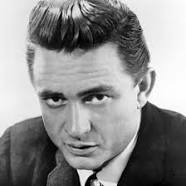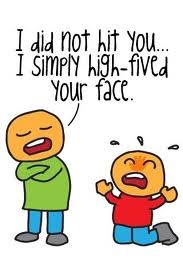
In a previous post we looked at the first verse of the Dieri translation of the Johnny Cash song “Folsom Prison Blues”. In this post we will look at how Greg Wilson and the Dieri Elders based in Port Augusta have translated the second verse of the song (we had a go at singing it at the third workshop in Adelaide on 4th April but have not yet made a proper recording).
Nganhi kupa nganarnanhi, ngandri yatharna wanthiyi
“Kanku ngumu ngamamayi, wata makitanhi pirkirna”
Renonhi mathari palirnanhi ngathu nhayiyi
Ngathu traina ngararna nganhi matya yindrayi
Translated into English this means:
When I was a child (my) mother said
“Be a good boy, without playing with guns”
In Reno I saw a man die
When I hear the train I just cry
As mentioned for Verse 1, this is not exactly the same as the original Johnny Cash song as it had to be adjusted it to fit the Dieri words to the tune.
The words and their meanings are the following:
nganhi means ‘I’ when it is used with a situation that only involves a single participant (used with an ‘intransitive verb’ — for this grammatical distinction review this post)
kupa means ‘child’
nganarnanhi consists of the verb root ngana ‘to be’ plus the ending -rnanhi which is used to link together two events that occur at the same time and involve different subjects — here ‘I’ and ‘mother’
ngandri means ‘mother’
yatharna wanthiyi means ‘said long ago’ and consists of the root yatha-rna ‘to say, tell’ and the element wanthiyi that means ‘action done a long time ago’
kanku means ‘boy’
ngumu means ‘good’
ngamamayi is the order form of the verb ngama-rna ‘to sit’ so it means ‘(you) sit down!’
wata means ‘not’
makitanhi consists of makita meaning ‘gun’ (it comes from the English word “musket”) plus the ending -nhi meaning ‘with’
pirkirna means ‘play’ and includes the ending -rna which is used to link together two events that occur at the same time and involve the same subject — here ‘you sit down and you don’t play with guns’
Renonhi consists of Reno plus the ending -nhi meaning ‘in, at’
mathari means ‘young man’
palirnanhi consists of the root pali ‘to die’ plus the ending -rnanhi which is used to link together two events that occur at the same time and involve the different subjects — here ‘a young man dies and I see it’
ngathu means ‘I’ when it is used with an action that affects someone or something else (used with a ‘transitive verb’)
nhayiyi consists of the root nhayi ‘to see’ plus the ending -yi which indicates something happening now (‘present tense’)
traina means ‘train’ and comes from English (remember Dieri words need to end in a vowel so we add a here. Also, Dieri does not indicate ‘the’ or ‘a’ like English does.)
ngararna means ‘hearing’ — it consists of the verb root ngara ‘to hear’ and the ending -rnanhi which is used to link together two events that occur at the same time and involve the different subjects — here ‘the train comes and I hear it’
nganhi means ‘I’ when it is used with a situation that only involves a single participant (used with an ‘intransitive verb’)
matya means ‘already, just’
yindrayi means ‘cry’ — it consists of the verb root yindra and the ending -yi which indicates something happening now (‘present tense’)
In later posts we will discuss Verse 3 and Verse 4 of this song.




